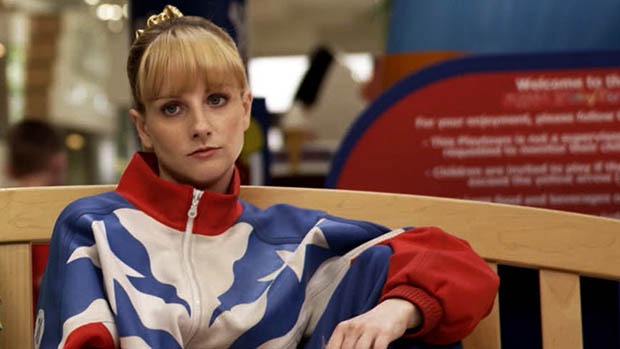 Back to selection
Back to selection
At Sundance Producers Brunch, Mark and Jay Duplass Offer Ten Pieces of Advice for Making Movies Today
 The Bronze
The Bronze Keynote speakers at today’s Producers Brunch at the Sundance Film Festival, independent powerhouses Jay and Mark Duplass issued a passionate and witty call to all the producers in the jam-packed house: keep making small movies. At an event that saw their own producing partner, Stephanie Langhoff, receive the Sundance Institute Red Crown Producers Award, they told producers to learn from their own decision to stay invested in the independent sector after receiving a measure of larger Hollywood success.
Along with Sundance Dramatic Competition entry The Bronze, which Langhoff produced, the Duplass Brothers have, as executive producers,two other productions at the festival: Sean Baker’s Tangerine and Patrick Brice’s The Overnight.
Savvy writers, directors, producers and actors, Jay and Mark Duplass know how punch through the crowded media landscape to build audiences for their work. Accordingly, rather than give a pseudo-heartfelt biographical speech at the Producers Brunch, they indulged listeners with an edifying internet-friendly listicle — ten pieces of advice for independent filmmakers today. That list, quoted and paraphrased, appears below.
1. “The phrase you can never go home is not true when it comes to Sundance,” said Jay. He remarked that the two of them have spent time in Hollywood, and that “wonderful things” had come out of that experience. “But some of it does not smell so good.” The world of independent film, he said, is “its own ecosystem. Don’t view [your Sundance picture] as a stepping stone.”
2. “Embrace the micro budget sphere,” urged Mark. “It’s painful to be waiting around six years for a $20 million film.” Mark proposed another model for both new filmmakers and those waiting around for the phone to ring: a $150,000 movie where three quarters of the points are shared with the crew.” He said that a good project budgeted at that level “can find a rich person [to fund it] in a month” — usually a person who wants to experiment and go to Sundance.
3. “Do not shit where you sleep.” This advice from Jay was perhaps the most provocative. Too many people working in independent film take jobs for hire they don’t really care about, he said. He said filmmakers would be better off working in commercials or, if they can’t get those gigs, getting a normal 9 to 5. Filmmaking should be in support of your own vision. “Try and stay clear and focused in the movies you are trying to make,” he said.
4. “Beware the $1 million movie,” warned Mark. “All fees are going to the union; above-the-line directors and producers are making $4,000 – $8,000.” Mark advised rewriting that $1 million film for $250,000 and retaining greater ownership. To wit, he described hiring Langhoff, who worked for a very low fee but owns a percentage of the movies.
5. Give crew points in the film. “There’s an old independent film joke,” Jay said. “What is back end? That’s what you are if you ever think you are going to see any.” He recommended producers give crew on these small productions points in the film. “Create a scenario where you have a wildly successful film and you’ve given away too many points… Those people will all want to work with you next time.”
6. “Give a first-time director a chance,” said Mark. “Experienced directors can be rough and fussy.” Instead, consider giving the smart screenwriter a break, and then get a great d.p. to help them. “Raid documentary directors,” he said, and also consider tapping the storytelling geniuses who are documentary editors.
7. “Make movies, not meetings,” said Jay. People in L.A. “have long-winded careers of lots of development meetings, but they don’t make movies.” Filmmaking itself is “terrifying and traumatic,” he said. “It feels like you’re going to die every second. But it’s very easy to confuse thinking about making movies with making them. Always jump off the cliff.”
8. “Left brain, right brain,” said Mark. “Read the trades. Gain a knowledge of the industry. Knowledge is power.” He said he and Jay are constantly scouring the industry trade papers for news of new production divisions or potential partners.
9. “Employ a strict no assholes policy,” said Jay. Humorously riffing on the “crazy awesome” d.p. everyone wants to hire because his stuff is so cool “and he’s supposed to be such an asshole,” Jay said, “that guy will ruin your movie.”
10. “If you have never been to therapy go to ten sessions immediately,” said Mark. “There are annoying things you do now that are keeping you out of meetings and keeping people from working with you.” Stressing that he was absolutely serious, Mark ended by noting one side benefit of therapy for filmmakers: “It can improve your marriage as well.”
